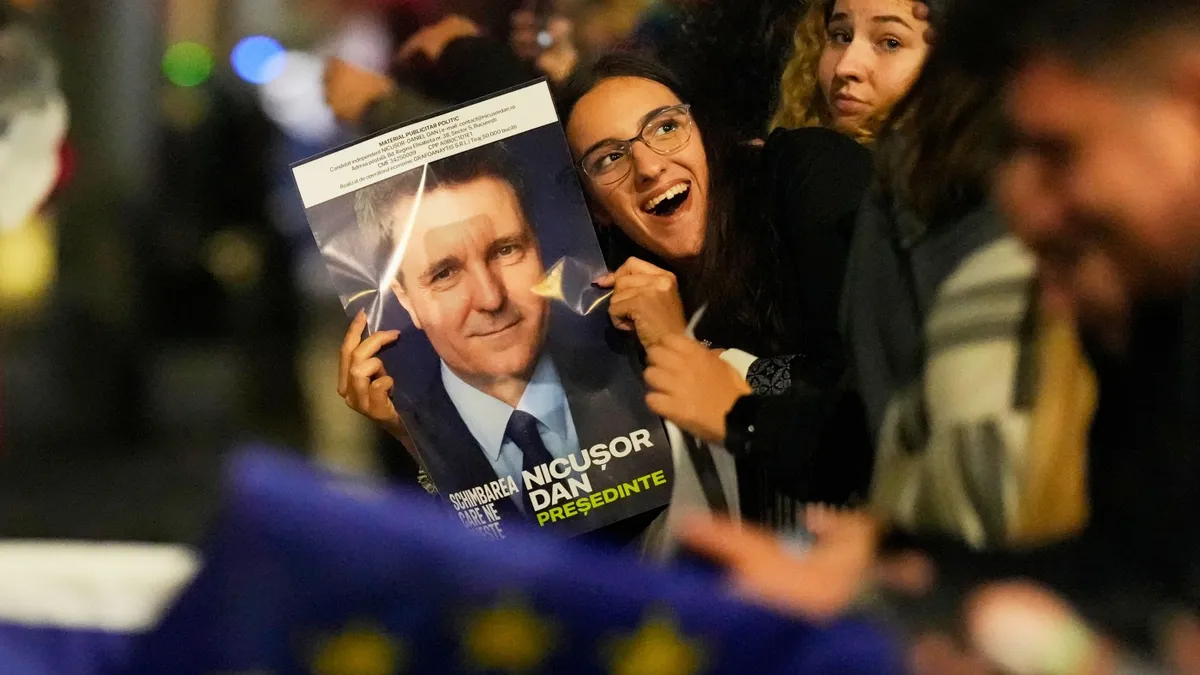
Pro-European Union candidate Nicusor Dan has emerged victorious in Romania's closely watched presidential runoff election, defeating hard-right nationalist George Simion. This election was pivotal, with many viewing it as a significant geopolitical choice between alignment with the East or the West. The incumbent mayor of Bucharest, Dan, faced off against the 38-year-old leader of the hard-right Alliance for the Unity of Romanians (AUR), Simion. The runoff took place months after a previous election was canceled, plunging Romania into its worst political crisis in decades.
As per official electoral data, with 10.7 million of the 11.6 million votes counted, Dan had secured approximately 54.19% of the vote, while Simion trailed with 45.81%. This marks a significant comeback for Dan, who was initially behind in the first round of voting on May 4, where Simion had garnered nearly double the votes. The dramatic shift in voter sentiment seems to reflect a repudiation of Simion’s more skeptical stance towards the EU, which Romania joined in 2007. Dan notably picked up nearly 900,000 additional votes to decisively defeat his opponent in the final round.
Notably, the voter turnout for this election reached 64%, a significant increase from the 53% turnout in the first round. Approximately 1.64 million Romanians abroad voted at specially set-up polling stations, marking an increase of 660,000 compared to the first round. Such a turnout indicates a strong desire for change among the Romanian electorate.
In his victory speech, Dan emphasized that elections are about communities, stating that the Romanian populace has voted for profound change. He acknowledged the divisions within the country, recognizing that there is a segment of the population that feels disenchanted with the current political landscape. Dan expressed hope that the strength of Romanian society would prevail during challenging times and reiterated his commitment to a pro-European Union agenda.
After the polls closed, Dan appeared on the balcony of his headquarters, where thousands of supporters gathered, celebrating the victory with chants of “Nicusor!” As the results came in, the atmosphere was electric, with many supporters waving European flags, showcasing their alignment with a pro-European vision for Romania.
The political landscape in Romania has been significantly altered following this election. The previous election was annulled due to allegations of electoral violations and foreign interference, leading to heightened tensions within the country. Dan, a former civic activist and mathematician, has previously founded the reformist Save Romania Union party before running independently. His platform emphasizes reaffirming Romania's ties with the West, supporting Ukraine, and implementing fiscal reform.
Conversely, Simion, who had predicted a victory for himself, called for vigilance against election fraud and expressed satisfaction with the election's conduct. He has been a vocal critic of the existing political establishment, and his party, AUR, has gained traction by promoting conservative values and appealing to national pride. Despite his loss, Simion’s rhetoric and the support for his party indicate a divided political climate in Romania, where a significant portion of the electorate is drawn to anti-establishment sentiments.
The winner of the presidential race serves a five-year term and wields substantial decision-making power in matters of national security and foreign policy. Nicusor Dan will now be tasked with nominating a new prime minister following the resignation of Marcel Ciolacu, whose candidate failed to advance in the runoff. As Romania moves forward, the implications of this election will resonate in various sectors, influencing policies and the overall direction of the country.
As Romania navigates its future, the recent election results highlight the electorate's desire for change, illustrating the complexities and challenges facing the nation in its quest for a more stable and prosperous future within the European Union.